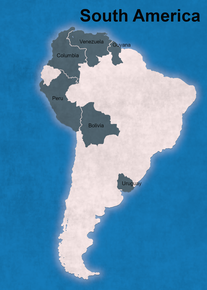When one thinks of a wetland, it is possible that images of Shrek’s dark and creepy swamp come to mind. A place where misfits are rejected from society and sent to live among the undesirable. But in reality, wetlands in their natural state are beautiful, peaceful, yet vibrant landscapes that provide us with a place to relax, reconnect with nature, and enjoy many recreational activities. Not to mention, they are home to countless animals, insects and plants that could not survive anywhere else. What are Wetlands? But what exactly is a wetland? Well, there are many definitions, so it depends on who you ask. But generally, they are areas of moving or static water where the soil is seasonally or permanently wet. Not very specific, is it? That is because there are a variety of wetlands, all with their own characteristics, such as marshes, swamps, floodplains, coastal mangroves, and even coral reefs![i] Wetlands can be found around the world and provide us with many free benefits. Why do we care about Wetlands? Wetlands left in their natural state provide us, as human beings, with a variety of direct and indirect benefits (called ecosystem services) that contribute to our health, help fight climate change, support the global economy, and provide us with spiritual enrichment.[ii] They contribute to our health by not only purifying and detoxifying water but replenishing underground aquifers, which 1.5-3 billion people rely on as their main source of drinking water. As a result of their damp conditions, wetland plants grow faster than organic matter can decompose, thereby storing mass amounts of carbon (acting as carbon sinks). They also reduce, delay, and even prevent impacts from floods by storing water. Lastly, they are home to wonderful species such as frogs, salamanders, dragonflies, ducks, and fish, which provide us with a tranquil escape from city life and support ecotourism, which in turn, supports the economy. For example, 35-45 million people engage in recreational fishing in the United States alone, spending roughly $24-37 billion each year. Scuba diving around coral reefs also generates consider dough, about $30 billion each year and heavily rely on healthy, thriving ecosystems.
project, or write to your government representative and express your desire for change. In Canada, this would be your local MPP representative or your province’s Natural Resources Minister. [i] See Convention on Wetlands of International Importance. 1971. art.1 for the broadest definition of a wetland I have come across.
[ii] See Millennium Ecosystem Assessment. 2005. Ecosystems and Human Well-Being: Wetlands and Water for more statistics and descriptions of ecosystem services from wetlands. [iii] Dugan, P. (ed.). 1993. Wetlands in danger: A world conservation atlas. Oxford University Press, New York.
1 Comment
2/20/2023 06:40:12 am
Why do athletes need to take nutritional supplements before and during workouts?
Reply
Leave a Reply. |
AuthorWrite something about yourself. No need to be fancy, just an overview. Archives
October 2021
Categories |

 RSS Feed
RSS Feed